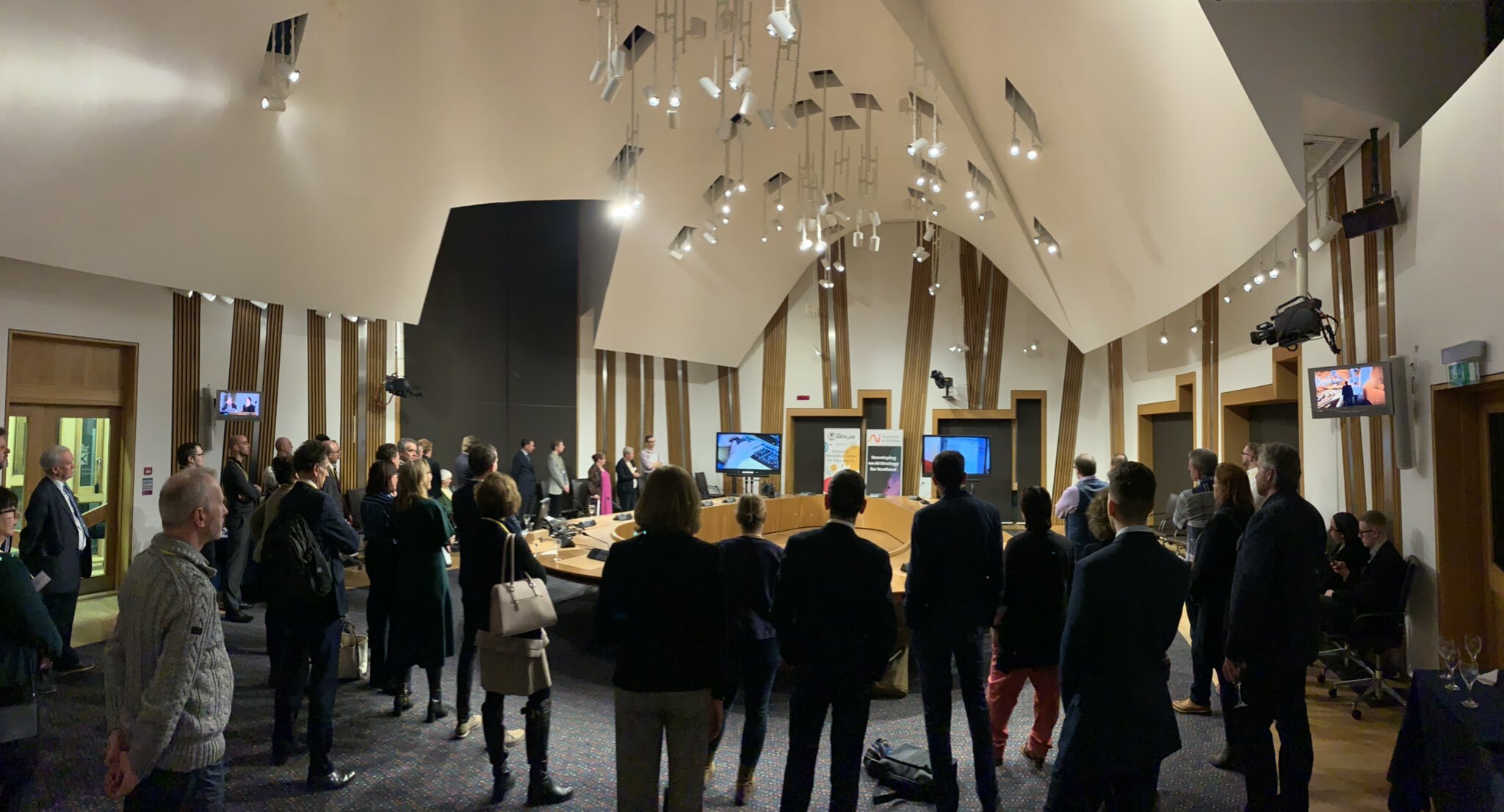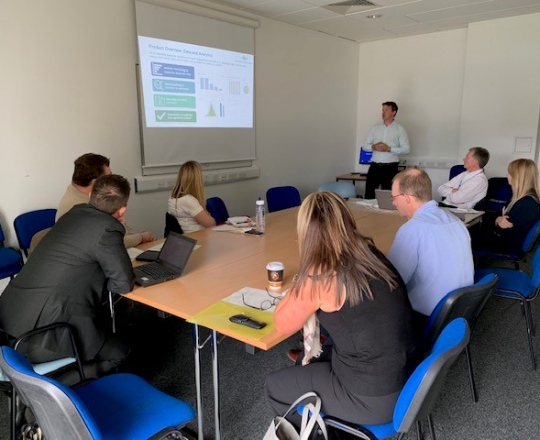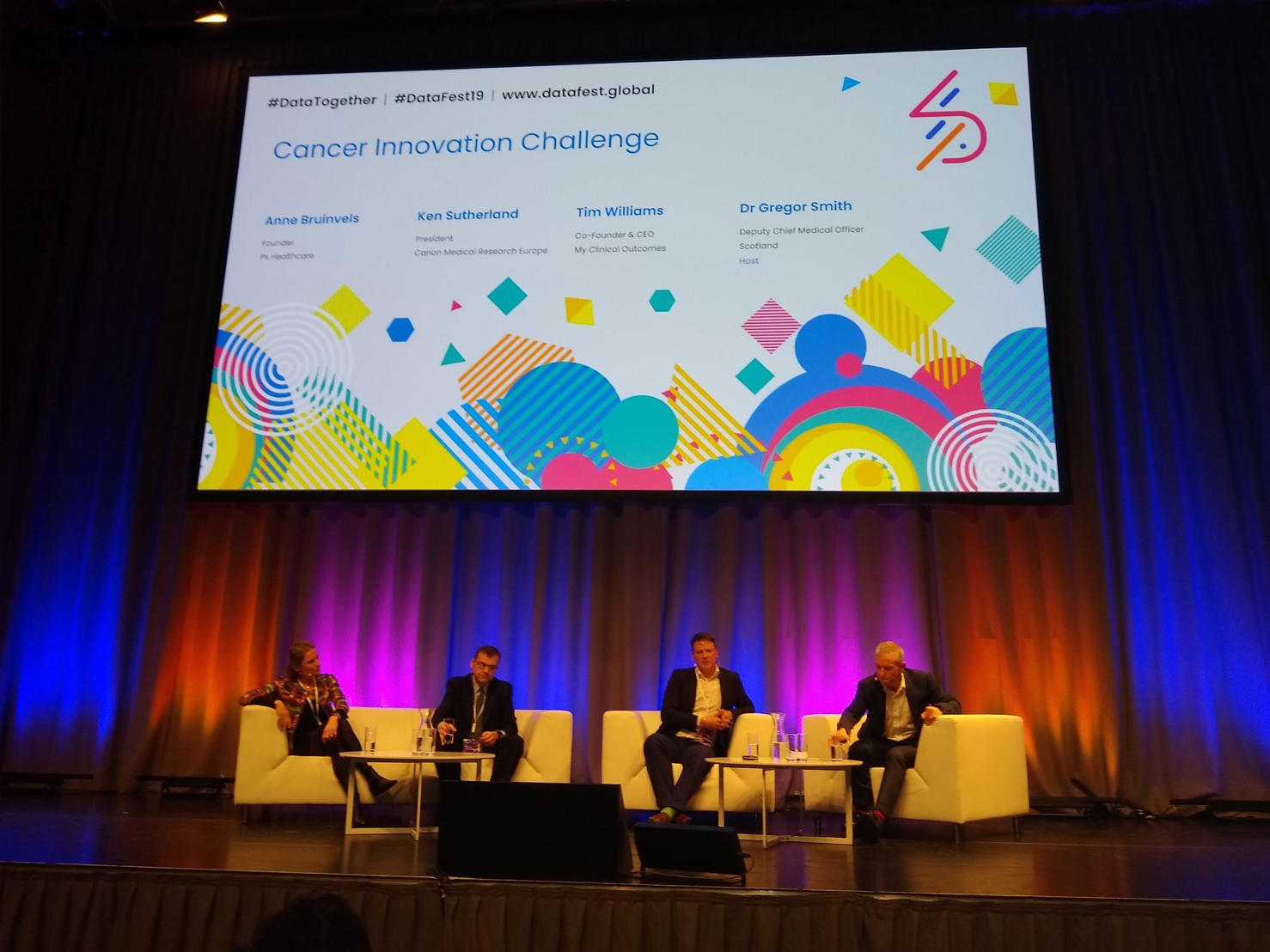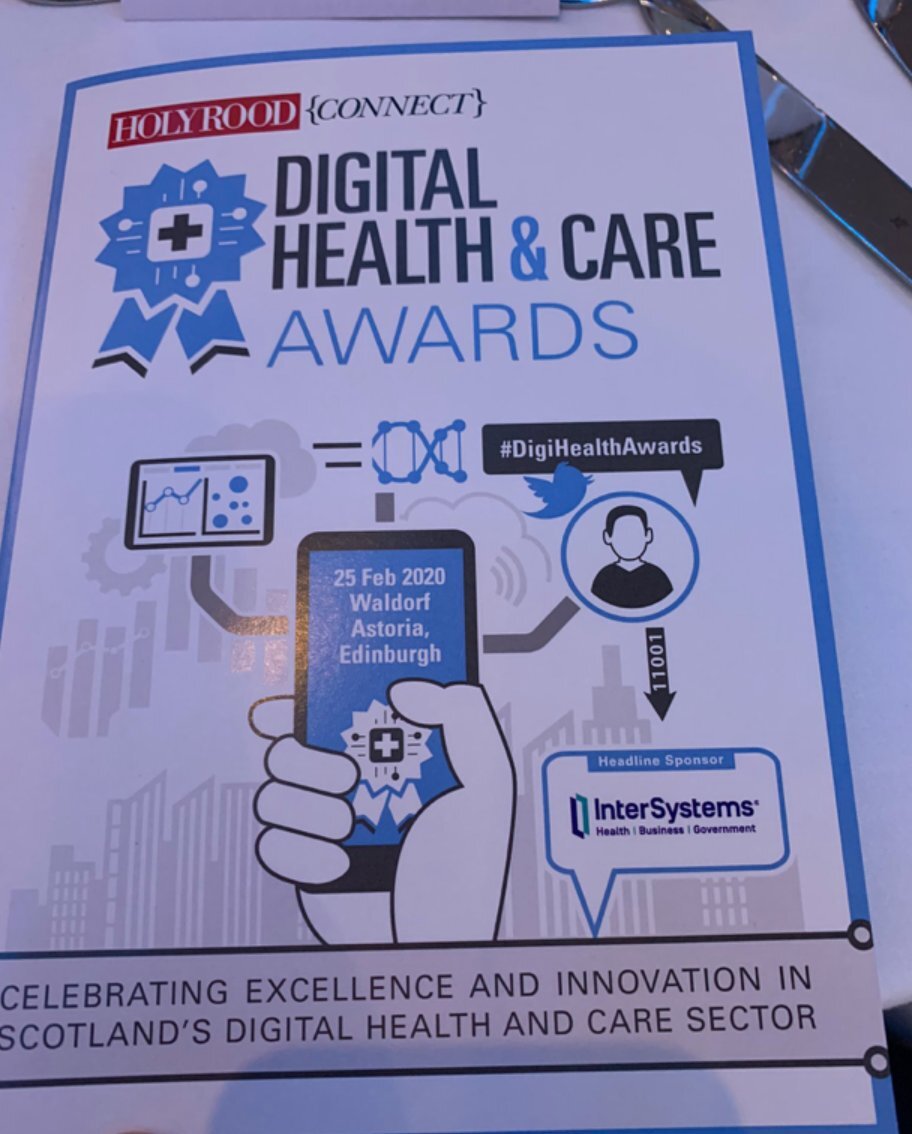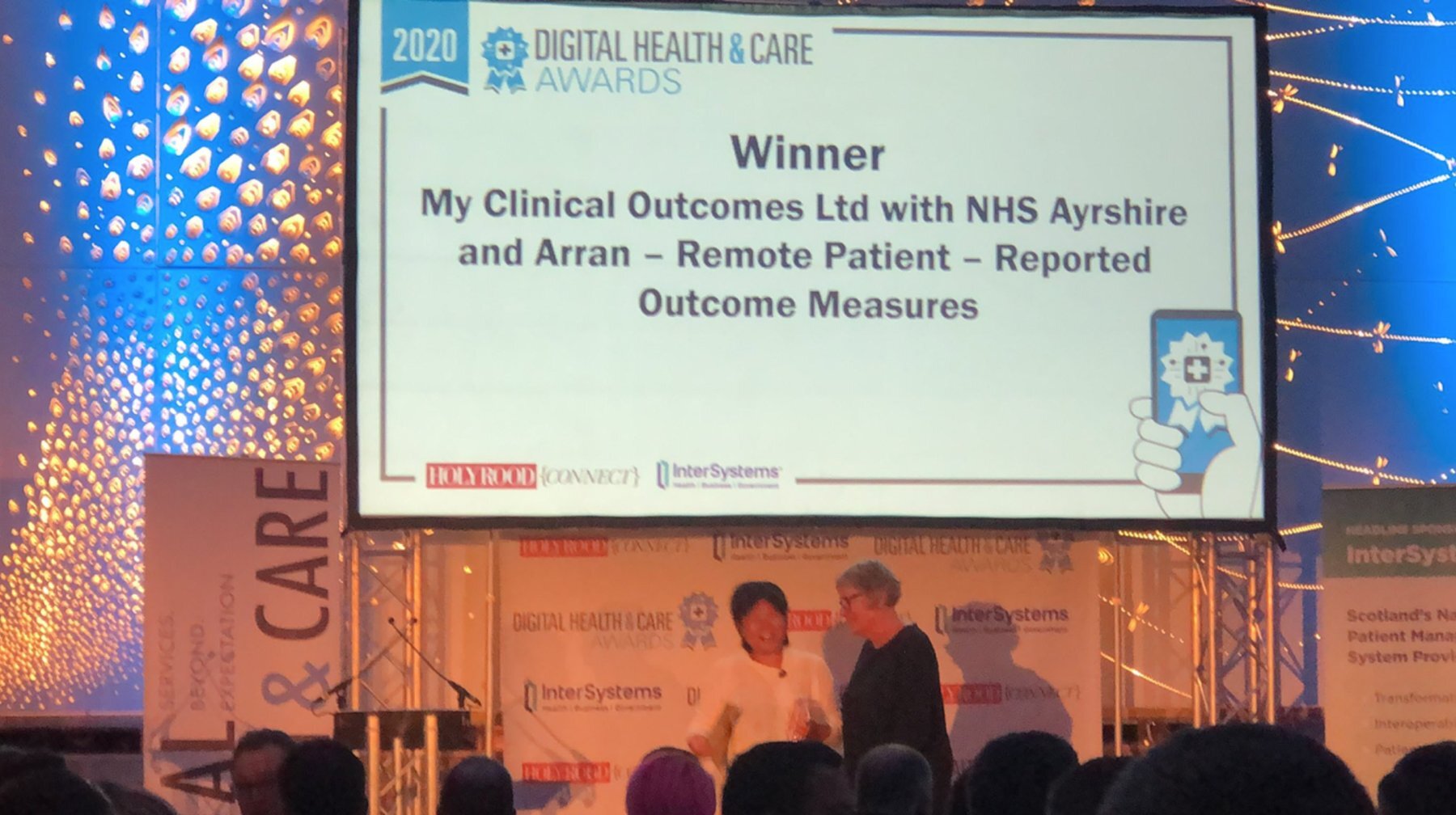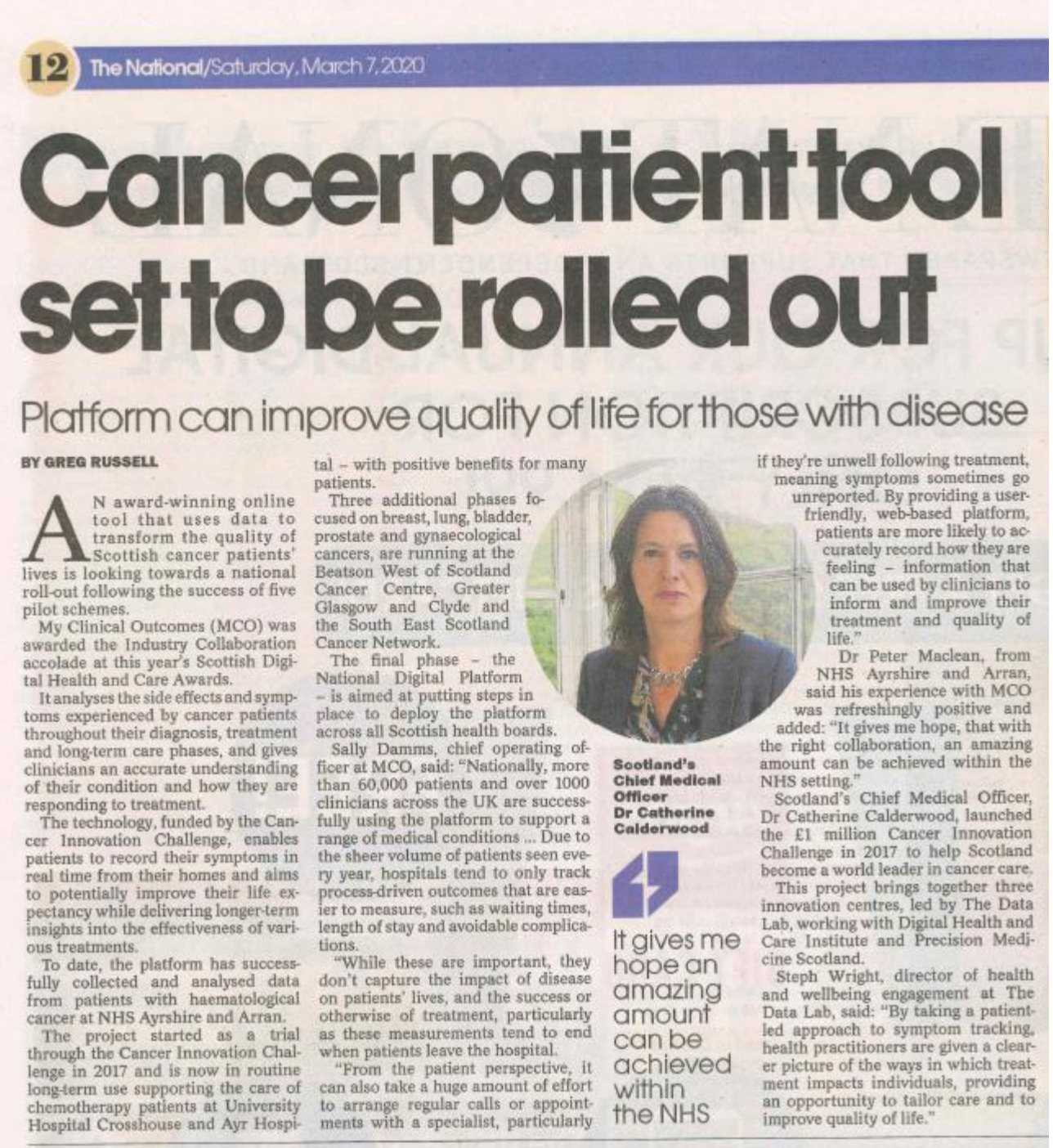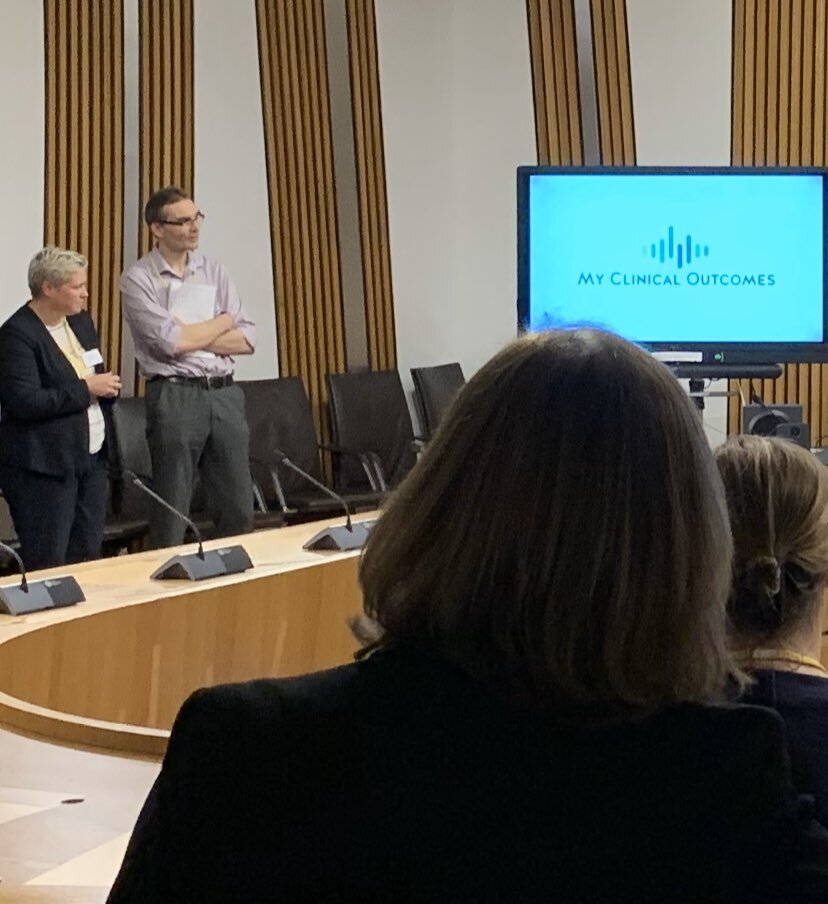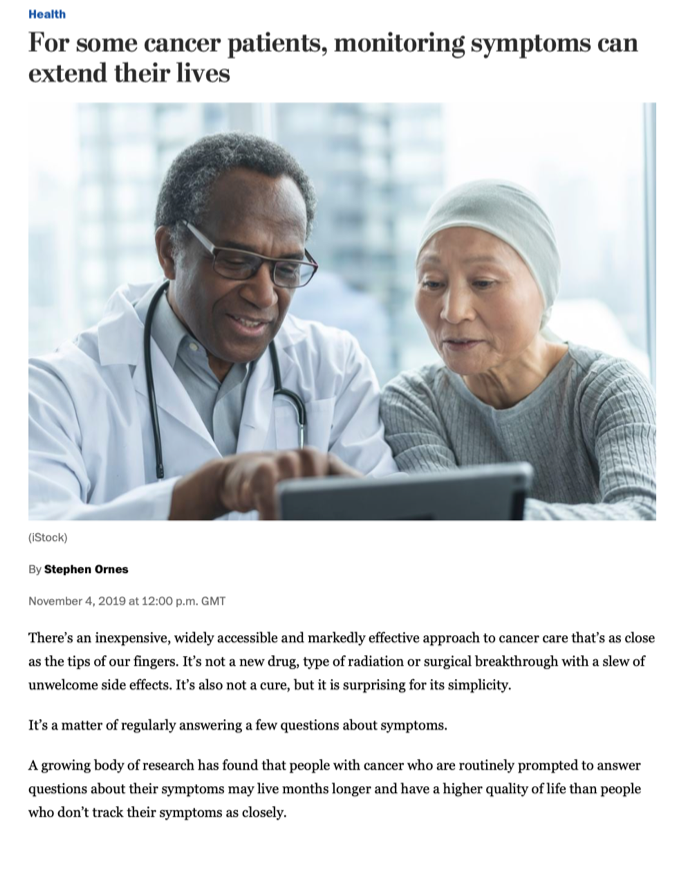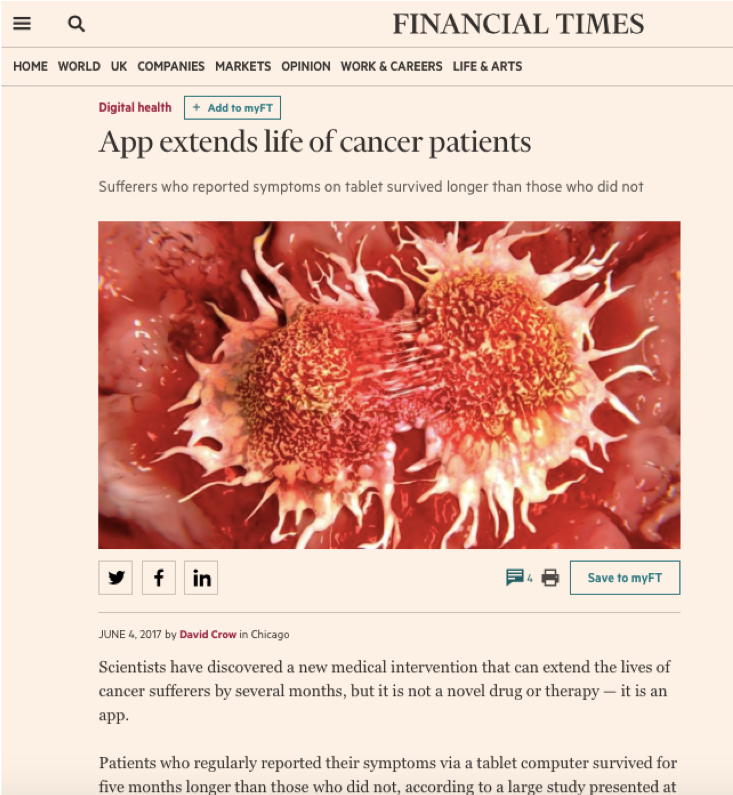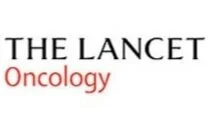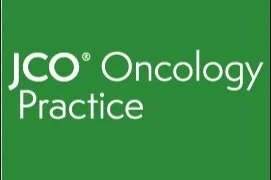My Clinical Outcomes for NHS Scotland
MCO and the Cancer Innovation Challenge for NHS Scotland
In 2017, MCO was awarded funding by the Cancer Innovation Challenge to develop a platform for the collection of oncology PROMs.
The first project was with NHS Ayrshire and Arran, aiming to support patients undergoing chemotherapy in haematological cancer. After a successful trial, MCO is still in use to remotely capture detailed quality of life data from patients in between consultations. Clinicians review and respond to the data accordingly, allowing the next treatment to proceed as planned, arranging a focussed phone consultation, but importantly significantly reducing reliance on face-to-face consultations.
“This is convenient… it unearths levels of toxicity and side effects that might not have been identified by other methods, and it allows a more direct comparison between patients than was previously possible.”
Dr Peter Maclean, Consultant Haematologist and Director of Cancer Services, NHS Ayrshire and Arran
“It allows a bit more time for you to think about what there is to convey, and it’s useful in saving a lot of time for doctors…. I think if we could use it, anyone could use it!”
A patient with myeloma on using MCO
Following the success of the initial phase, MCO has gone on to receive funding to:
Work with breast oncologists at The Beatson West of Scotland Cancer Centre to develop an acute and follow-up PROMs pathway for secondary breast cancer patients.
Deploy a solution for gynaecological cancer patients from across the West of Scotland Cancer Network undergoing surgery at NHS Greater Glasgow and Clyde.
Deploy a solution to capture and track quality of life data on patients being treated by any of six clinical teams with a different tumour focus and from across the four health boards of the South East Scotland Cancer Network (SCAN).
Collaborate with the National Digital Platform team on a potential strategy for scaling similar innovations nationally in the future.
